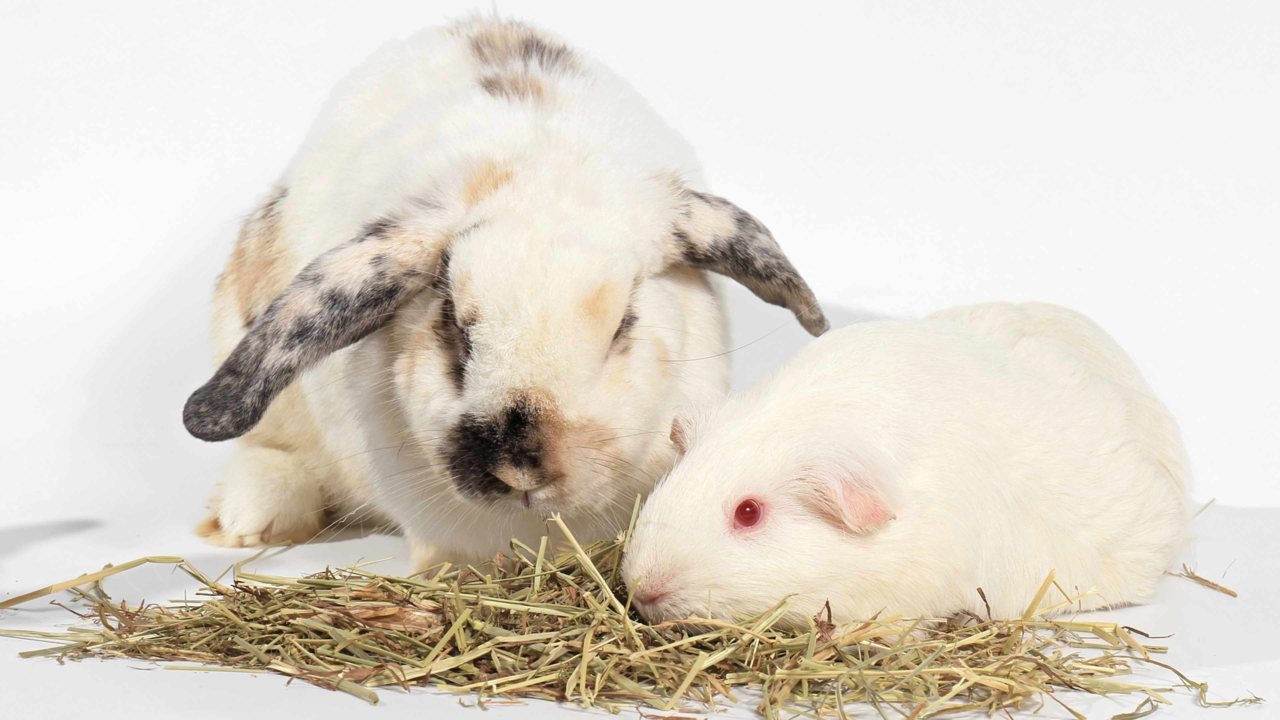
What to Feed Your Rabbit or Guinea Pig: A NZ Diet Guide
If you share your home with a fluffy little herbivore like a rabbit or guinea pig, you’ll know how important it is to feed them the right diet. These small but mighty pets may be tiny in size, but their nutritional needs are quite specific. Feeding your rabbit or guinea pig properly helps support their digestive health, dental health and overall wellbeing. At Petdirect, we get pet — and that includes our beloved small pets too! Let’s dive into everything you need to know about giving your rabbit or guinea pig a balanced, happy diet.
The Importance Of Hay: The Foundation Of Their Diet
For both rabbits and guinea pigs, hay isn’t just a snack — it’s a must-have. It should make up about 80-90% of their daily diet. Hay keeps their teeth worn down naturally and helps support healthy digestion.
Look for fibre-rich, fresh-smelling hay. Timothy hay is a favourite, but other varieties like meadow or orchard hay can be mixed in for variety. You can browse our range of small pet hay options to keep their hay rack happily topped up.
Pellets For Added Nutrition
While hay is the main course, high-quality, species-specific pellets are a great complement. Pellets provide essential vitamins and minerals, especially important for growing, pregnant or nursing pets.
Feed a measured portion daily — around 1–2 tablespoons for guinea pigs and ⅛ cup for adult rabbits is usually sufficient.
Guinea pigs require extra Vitamin C, as they can’t produce it themselves — a deficiency can lead to scurvy, causing joint pain, lethargy, and poor coat condition, so their pellets should include this as standard.
Explore our range of small pet pellets made with your furry friend’s needs in mind.
Fresh Vegetables: Tasty And Nutritious
Both rabbits and guinea pigs benefit from daily fresh vegetables, but their requirements are quite different — and it’s important to get the balance right for each species.
-
Guinea pigs need larger quantities of vegetables, particularly leafy greens, to support hydration and provide Vitamin C (which they can’t produce on their own). Aim for around 1 cup of mixed vegetables per kg of body weight daily, with a strong emphasis on Vitamin C-rich options like capsicum and leafy herbs.
-
Rabbits, on the other hand, should only have a small portion of vegetables daily — around 1 cup per 2 kg of body weight. Too many veggies (especially high-water ones) can upset their sensitive digestive system and lead to serious health issues like soft stools or gut stasis.
Some safe veg options for both species include:
- Cos lettuce (avoid iceberg)
- Parsley and coriander
- Capsicum
- Carrot tops (in moderation)
- Broccoli leaves
Introduce new vegetables gradually, wash all fresh foods thoroughly, and rotate selections to keep things varied. Always observe your pet’s digestion and droppings — these are great indicators of how their diet is tracking.
Treats: A Little Goes A Long Way
Treats should make up a tiny part of your rabbit or guinea pig’s diet — think an occasional nibble, not a daily thing. Natural chews or fruit slices like apple (without seeds) or strawberry can be offered occasionally. Limit foods high in sugar or fat.
For wholesome treats that double as enrichment, check out our small pet treats range, including chews and bars that are perfect for nibbling playtime.
Fresh Water: Always Available
No matter what they’re munching, fresh, clean water is non-negotiable. Use a sipper bottle or a shallow bowl depending on your pet’s preference — just be sure to clean it daily. You can shop small pet feeders and waterers to find something that suits your setup and your pet's eating and drinking habits.
Supplements And When They Might Be Needed
Usually, a balance of hay, pellets, and veg provides all the nutrients rabbits and guinea pigs need. But sometimes, supplements can play a role — especially for guinea pigs who are prone to Vitamin C deficiencies.
If your furry friend needs a little nutritional boost, explore our selection of small pet supplements, including Vitamin C supplements and more natural support options. Always speak to a trusted small animal vet if you’re not sure whether your pet needs a supplement.
Remember: while both species need a balance of hay, pellets, and fresh food, guinea pigs rely on vegetables to meet their Vitamin C needs, while rabbits need a much lighter touch with veg to avoid digestive upset.
Foods To Avoid
Just like other pets, there are some foods that are unsafe for rabbits and guinea pigs. Do not feed:
- Chocolate, sweets or processed human food
- Iceberg lettuce
- Avocados or onions
- Potatoes or kumara
- Bread or grains
- Dairy or meat
Stick to their natural diet, and you’ll help them thrive!
Petdirect Tip: Get Rewarded While You Shop
When you buy your small pet essentials at Petdirect, you’re automatically gaining rewards through our Pet Perks Loyalty Programme. Plus, earn Airpoints with every purchase. It's our way of saying thanks for being a wonderful pet parent.
Conclusion: Healthy Pets Start With Healthy Feeding
A well-balanced diet tailored to their species is one of the greatest gifts you can give your rabbit or guinea pig. From nutritious hay to healthy treats, everything you need to support your small pet’s wellbeing is just a few clicks away at Petdirect.
Need help choosing the right food? Our pet-loving team is here to help. Because we get pet — and we care about yours.
Explore our small pet range today for everything your bunny or piggy needs to stay healthy and happy!